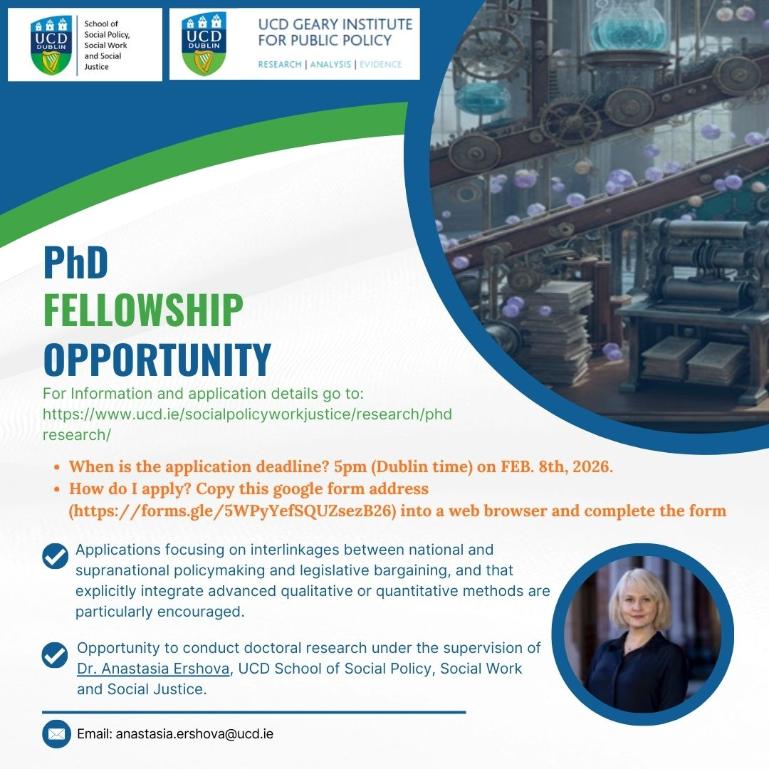PhD programme
The School of Social Policy, Social Work and Social Justice offers research degrees in social work, social policy and social justice (PhD programmes). Undertaken full-time over three years, or part-time over six years, a PhD is a research degree in which you will make an original contribution to knowledge by pursuing an extended and focused piece of research on a topic of your interest.
We offer a lively intellectual environment in which to undertake postgraduate research with a range of thematic research groups and research centres and an active seminar programme. You will benefit from our excellent links to other social policy/social work/social justice scholars, policymakers and practitioners across the world.
The structured programme enables you to acquire a broader set of transferable skills during your time with us. Postgraduate research students can access a range of research training courses tailored to the needs of their project.
View our PhD Research Student Profiles
New funding opportunity for PhD
The School of Social Policy, Social Work and Social Justice at University College Dublin (UCD) welcomes PhD applications on topics related to policymaking in multilevel/EU settings. Applications focusing on interlinkages between national and supranational policymaking and legislative bargaining, and that explicitly integrate advanced qualitative or quantitative methods are particularly encouraged.
The successful candidate would have a unique opportunity to join UCD as an Ad Astra Doctoral student and will be offered financial support for the duration of four years (see additional details below).
University College Dublin is Ireland's global university, which is a world-leading centre for education and research in the social sciences and related disciplines. This PhD scholarship aims to provide one student who has great potential and very strong analytical skills, with the opportunity to work within an exciting multidisciplinary research field. We invite applications for the PhD programme, starting September 2026. On completion of the PhD, the successful candidate will earn a PhD in Social Justice from University College Dublin, under the supervision of Dr. Anastasia Ershova.
Funding
Successful candidate will receive financial support for the duration of 4 years. This includes:
- Full funding of their tuition fees;
- A Stipend of €25,000 per annum;
- Research fund of €4,000 per annum;
- A programme of training opportunities and events delivered by the UCD College of Social Sciences and Law.

Eligibility
This is a full time position. Candidates, applying from anywhere in the world, are to meet the following eligibility criteria
1) An academic background in Social Sciences (particularly, Public policy, Political Science, European Studies, Public Administration) or cognate disciplines
2) Must hold a Master’s degree or complete in at the time of the commencement of the post.
3) Must demonstrate training in and use of robust research methods.
4) Must submit research proposal that addresses issues of policymaking in multilevel setting, including EU policymaking.
5) UCD is committed to equality, diversity and inclusion. Learn more: www.ucd.ie/equality
Shortlisted candidates will be contacted in due course to arrange an online interview and provided guidelines in advance.
Application process
Please apply by 5pm Dublin time on 8th Feb. 2026 using the Google Form at this (opens in a new window)link .
Find out more about the UCD 4 year structured PhD
For more information about the structure of the PhD programme in Social Work please consult the School website .
About the School
The School of Social Policy, Social Work and Social Justice is part of the UCD College of Social Sciences and Law and operates a Structured PhD programme. This programme has proven to be highly successful and enables our PhD candidates to gain the best possible experience of graduate research and training. bout the School
About the supervisor/ lead investigator
Dr. Anastasia Ershova is an Assistant Professor/ Ad Astra Fellow at the School of Social Policy, Social Work and Social Justice and at the Geary institute. Anastasia holds a PhD in Politics and Public Administration from the University of Konstanz, Germany. Her primary research focuses on delegation of implementing powers in the EU governance systems, EU policy responsiveness, and Public policy. For further details please see (opens in a new window)here.